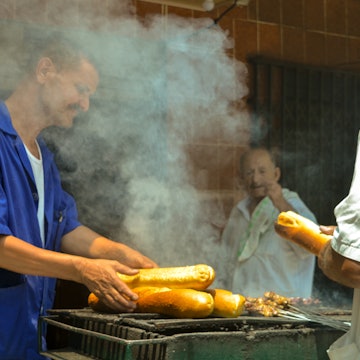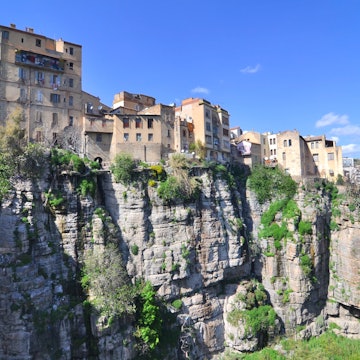
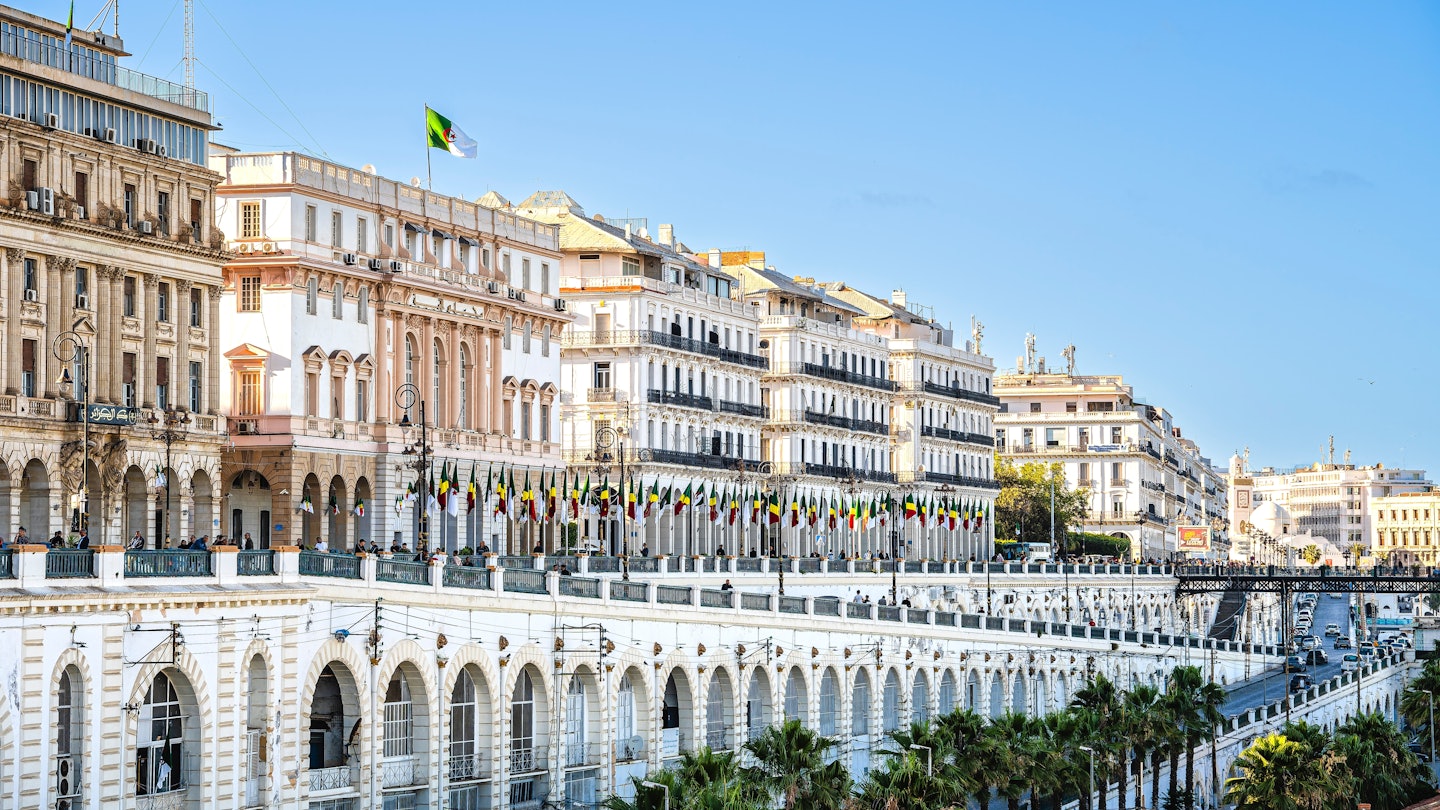
A visit to Algiers offers history in a unique place not yet overrun by tourists. mehdi33300/Shutterstock
Algiers is an ancient coastal city shaped by numerous civilizations — Amazigh, Roman, Arab, Ottoman and French — all of which have left their distinct historical, architectural and cultural footprints. Despite being steeped in centuries of history, serving as both the metropolitan hub of the country and a gateway to the countless hidden gems Algeria has to offer, its capital has somehow remained untouched by mass tourism.
Places that would otherwise be overrun with tourists in other countries, like ancient ruins, museums and cafés, are almost exclusively enjoyed by locals and are integral parts of everyday life. Visiting Algiers isn’t just a holiday, it’s a chance to experience North Africa the way the locals do.
When should I go to Algiers?
As a bustling capital city, Algiers can be explored year-round, so it makes more sense to plan your visit on the timing of the other destinations. Algeria is Africa's largest country and is therefore home to diverse landscapes and climates. With Mediterranean coastline and Sahara Desert, Algiers serves as the gateway to the rest of the country. While most travelers to the capital are only passing through on their way to other parts of the country, many make the mistake of skipping the capital altogether. A trip to Algeria without seeing Algiers is a missed opportunity.
If you're venturing into one of Algeria's desert destinations – most notably the UNESCO World Heritage Site of the Tassili N'ajjer – you'll want to visit between October and May, when temperatures are milder. If you're looking for a Mediterranean holiday along Algeria's scenic coast, the best time to soak up the sun is between May and October. Keep in mind that the large Algerian diaspora typically return home over the summer, particularly in August. Depending on your travel preferences, this influx can either add to the ambience or make things feel more crowded.
How much time should I spend in Algiers?
If you're pressed for time, three days will cover the essentials — spending a day in the Casbah, visiting key museums and sampling traditional Algerian dishes. If you have time to spare, a week allows for a deeper, more leisurely experience. You'll have the chance to fully immerse yourself in the city’s many layers and take day trips to destinations like Tipaza, Cherchell or one of the many nearby beaches.
Is it easy to get in and around Algiers?
To get to Algiers, you'll need to fly into Houari Boumediene International Airport (ALG). Once outside, taxis are readily available, but many locals prefer ride-sharing apps like Yassir or inDrive because of their competitive rates. Keep in mind that the drivers are not officially licensed taxi operators.
For those who prefer to experience a city up close, finding accommodation in Alger Centre, the downtown area, is highly recommended. With this as your home base, all the city's key sites will be within walking distance or accessible via the Algiers Metro.
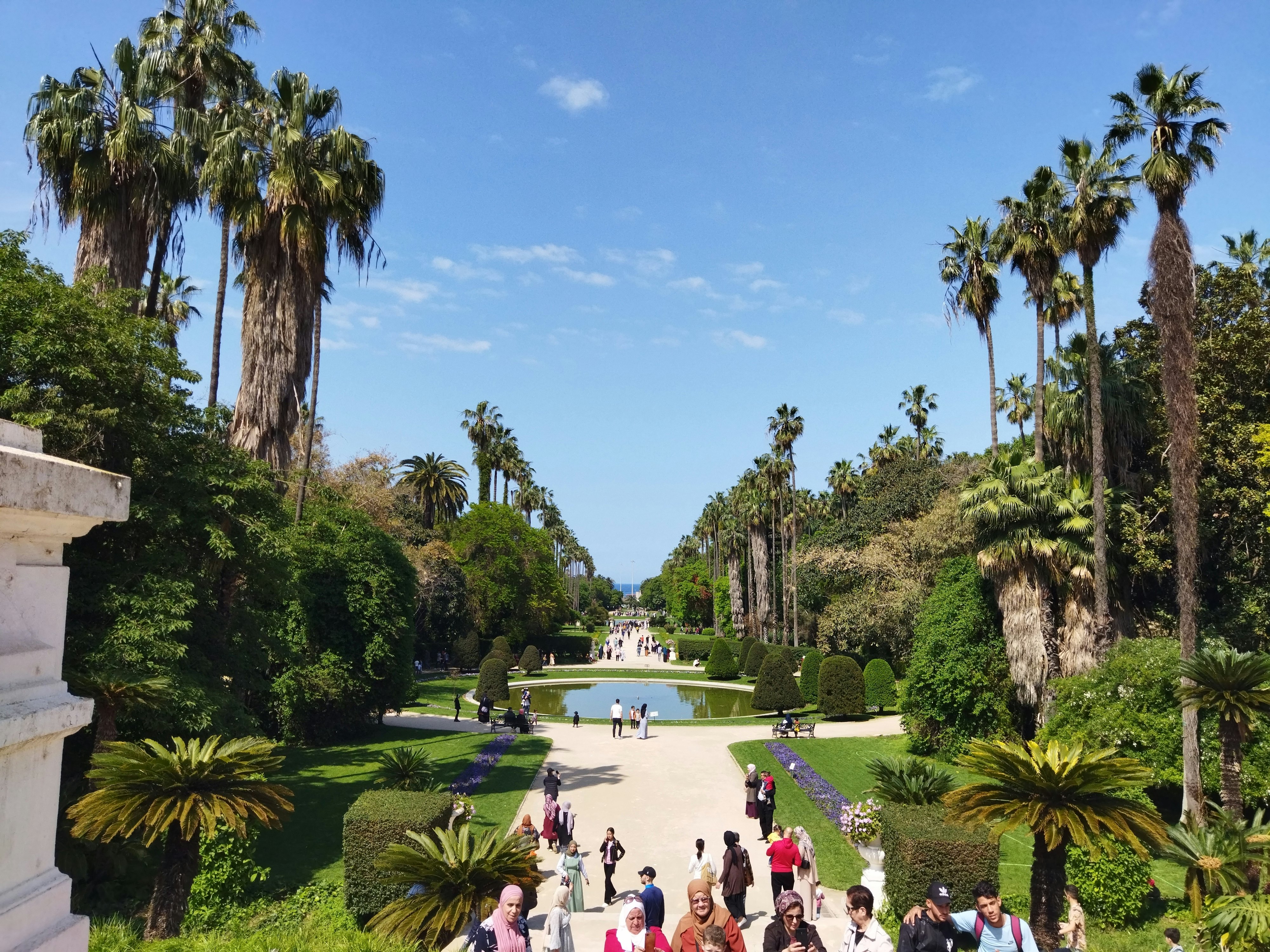
Top things to do in Algiers
Spend a day in botanical gardens
If you're looking to cool off in Algiers' humid weather, hop on the metro towards Jardin d'Essai station for a walk amongst the towering ficus trees. Built in the colonial period, Jardin d'Essai du Hamma is both a botanical garden and prominent research institution. Famous for its enormous ficus trees, one tree in particular is notably named the Tarzan Tree as the backdrop for the 1932 film Tarzan the Ape Man.
Explore the Casbah of Algiers
You might have heard of the Casbah of Algiers, either through a history book or the classic 1966 Gillo Pontecorvo film, The Battle of Algiers. As the city's most famous historic quarter, the Casbah is a symbol of Algeria's past. Built atop a hillside, it's a labyrinth of narrow alleyways, winding staircases and hidden Ottoman palaces that once served as a refuge for revolutionaries during the Algerian War of Independence.
Because of its intricate layout and complex history, it is highly recommended to visit the Casbah with a guide. To support local guides directly – and often at more affordable prices – make sure to do a quick Instagram search, as many guides advertise their services there. If that doesn't prove fruitful, you can always walk down to Ketchaoua Mosque where guides often wait for clients.
Visit Alger Centre
To the surprise of many visitors, Algiers’ architecture is primarily Haussmannian style, more reminiscent of the wide boulevards and ornate buildings of Paris than what they expect from a North African capital. The people, shops and markets, however, are distinctly Algerian. To get your bearings, start at the iconic Grande Poste, a former neo-moorish post office that has become the social hub of the city center. While it's no longer open to the public, it's a great starting point for a walk along Algiers' most famous boulevard, Rue Didouche Mourad, full of shops to browse and terraced cafes.
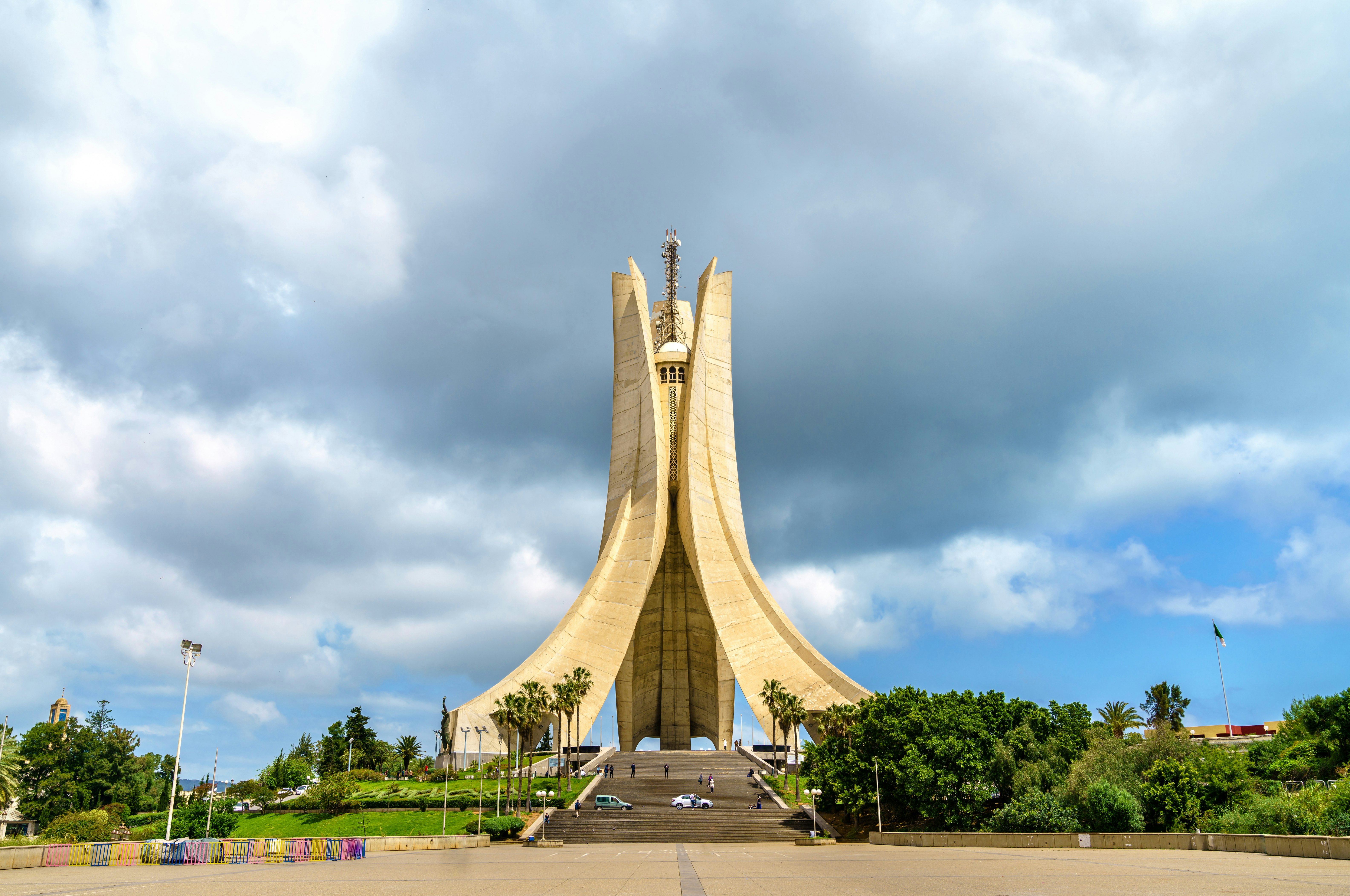
Make time for the Martyr's Memorial
Wherever you are in Algiers, you will almost always be able to see the Maqam Echahid – the Martyr's Memorial – towering over the rest of the city, a constant reminder of those killed during the War of Independence. After a visit to the Jardin d'Essai du Hamma, take the cable car up to the memorial for an aerial view of the gardens and deeper look into Algeria's past. Below the monument lies the National Museum of the Mujahid, an essential stop to understanding the struggles that shaped modern Algeria and its people.
Get lost in a museum
No matter your interests, the museums of Algiers have something for everyone. Want to learn about Algeria's prehistory? Visit the Bardo National Museum of Prehistory and Ethnography, housed in an 18th-century Ottoman villa that was formerly the residence of an exiled Tunisian prince. Feel like seeing a Monet or a Matisse? Stop by the Museum of Fine Arts, just above the Jardin d'Essai, to view one of the largest art collections in Africa. Interested in visiting the oldest museum in Algeria? The collection of ancient mosaics, bronzes and statues at the National Museum of Antiquities and Islamic Arts will transport you back to antiquity.
Step into ancient Rome in Tipaza and Cherchell
One hour by car west of Algiers, Tipaza and Cherchell offer a look into Algeria's ancient Roman past. Tipaza, once an important city in the province of Mauretania Caesariensis, is home to stunning Roman ruins set against the Mediterranean Sea. It's also the final resting place of Cleopatra's daughter, Cleopatra Selene II, who was buried alongside her husband and King of Mauretania, Juba II, in the Royal Mausoleum of Mauretania. Continue west to Cherchell, once the capital of Mauretania and formerly known as Caesarea, where its archaeological museum is filled with Roman sculptures, mosaics and artifacts.
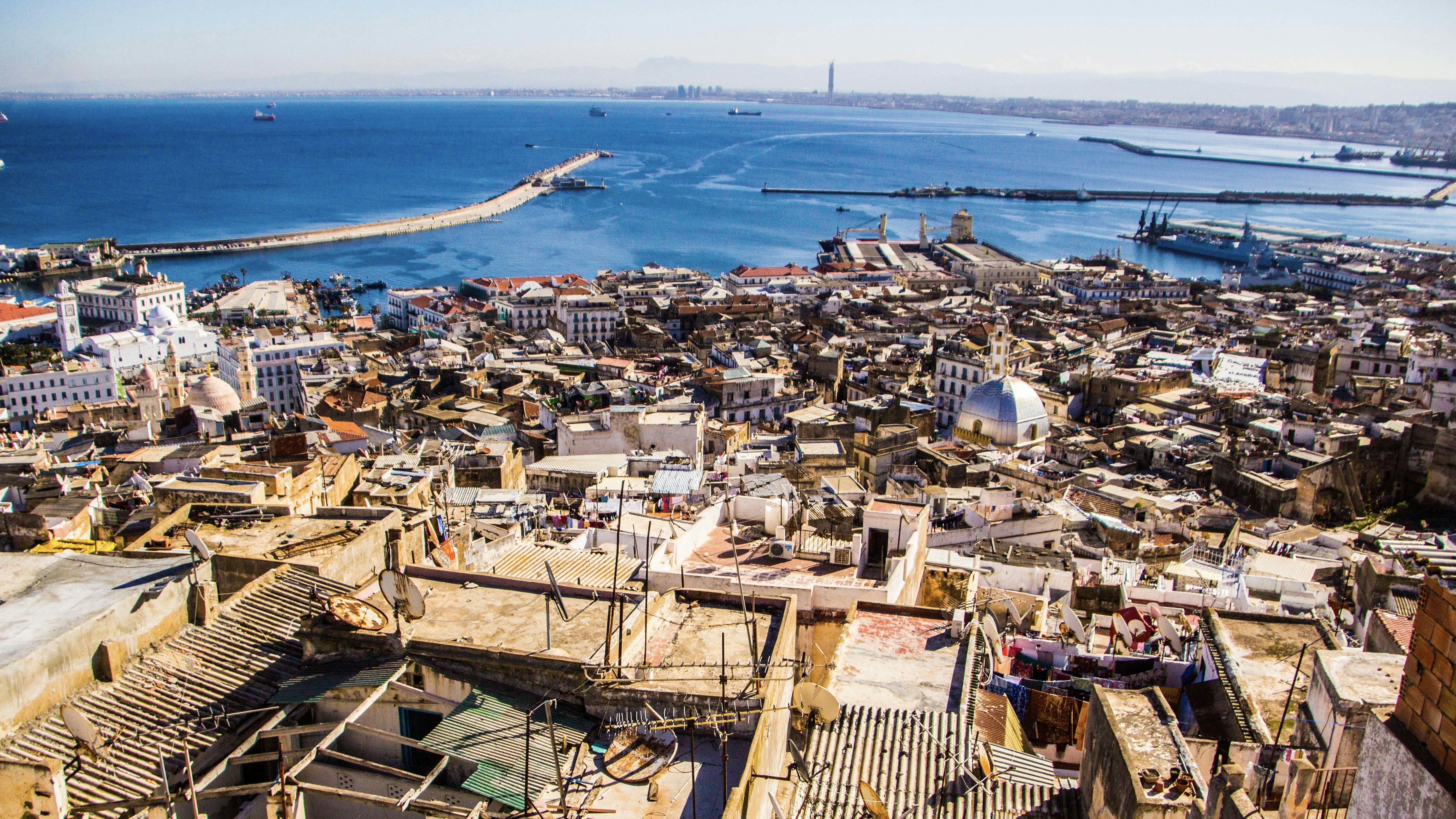
My favorite thing to do in Algiers
Algiers boasts some of the most scenic Mediterranean views from nearly every neighborhood. The best time to admire them is at sunset, which coincides with maghrib prayer, when the call to prayer rings out from every mosque across the city.
My favorite place in the city center to watch the sunset is Dar Mahiout, a rooftop teahouse in the Casbah, perched atop a cabinet maker's workshop. To access it, walk through the workshop itself and climb the narrow stairs through his family home to reach the terrace. There you can enjoy mint tea and some traditional Algerian sweets with views you'll never forget.
How much money do I need for Algiers?
The most important thing to remember when it comes to money in Algeria is that cash is king. It is essential to bring all the cash you will need for your trip into the country with you. ATMs that accept international cards are scarce and only available at a select few hotels. Finding a place to pay by card is even more rare, so ensure you have enough cash for the duration of your trip. The local currency, the Algerian dinar, is not available for exchange outside of the country, so bring euros or USD to change upon arrival.
Algiers is an affordable city by most travel standards. If you choose to live like a local, which is highly recommended, food and transportation will be very cheap. Accommodations cater to a wider range of budgets.
Night at a downtown hotel: from DA5000 (US$40) to DA20,000 (US$150)
One-day Metro pass (unlimited rides): DA150 (about US$1)
An espresso at Tantonville Café: DA250 (about US$2)
A plate of loubia at the famous Le Roi de la Loubia: DA180 (about US$$1)
A traditional dinner in a Casbah house at Dar el Mahroussa: from DA3000 to 4000 (US$20 to $30)
Museum tickets: DA100 to 200 (about US$1)
Dress modestly
Although Algiers is fairly relaxed compared to other parts of Algeria, it's still a good idea to dress modestly. While sleeveless tops are fine, loose-fitting clothing that covers the knees is recommended for both male and female travelers. There's no need for female travelers to cover their hair except when visiting one of the city's many mosques.
Learn a few words in Darja
French is widely spoken in the capital, but English has become increasingly popular in recent years, especially among younger generations. That being said, the majority of Algerians speak Darja, the Algerian Arabic dialect. If you'd like to pick up a few words before your trip, check out @SpeakAlgerian's videos on Instagram and TikTok – her videos are informative and geared toward English speakers. You can also purchase one of her ebooks to have handy during your travels.
Prepare for slower travel
As is the case with many things in Algeria, if you choose to use public transport like buses or regional trains, be prepared for the occasional hiccup or delay. Things might not always run on schedule, but with a little patience, you'll find that you will get where you need to go.
When in doubt, ask a local
As a tourist in Algiers, you're likely to stick out in the crowd, but that should work in your favor. Locals are often pleasantly surprised to encounter foreigners, so it isn't uncommon for locals to give you a warm welcome and ask a few curious questions. If you find yourself lost or in need of a recommendation, feel free to ask someone for help. More often than not, they will not only take you where you need to go, they might even invite you for dinner.
















